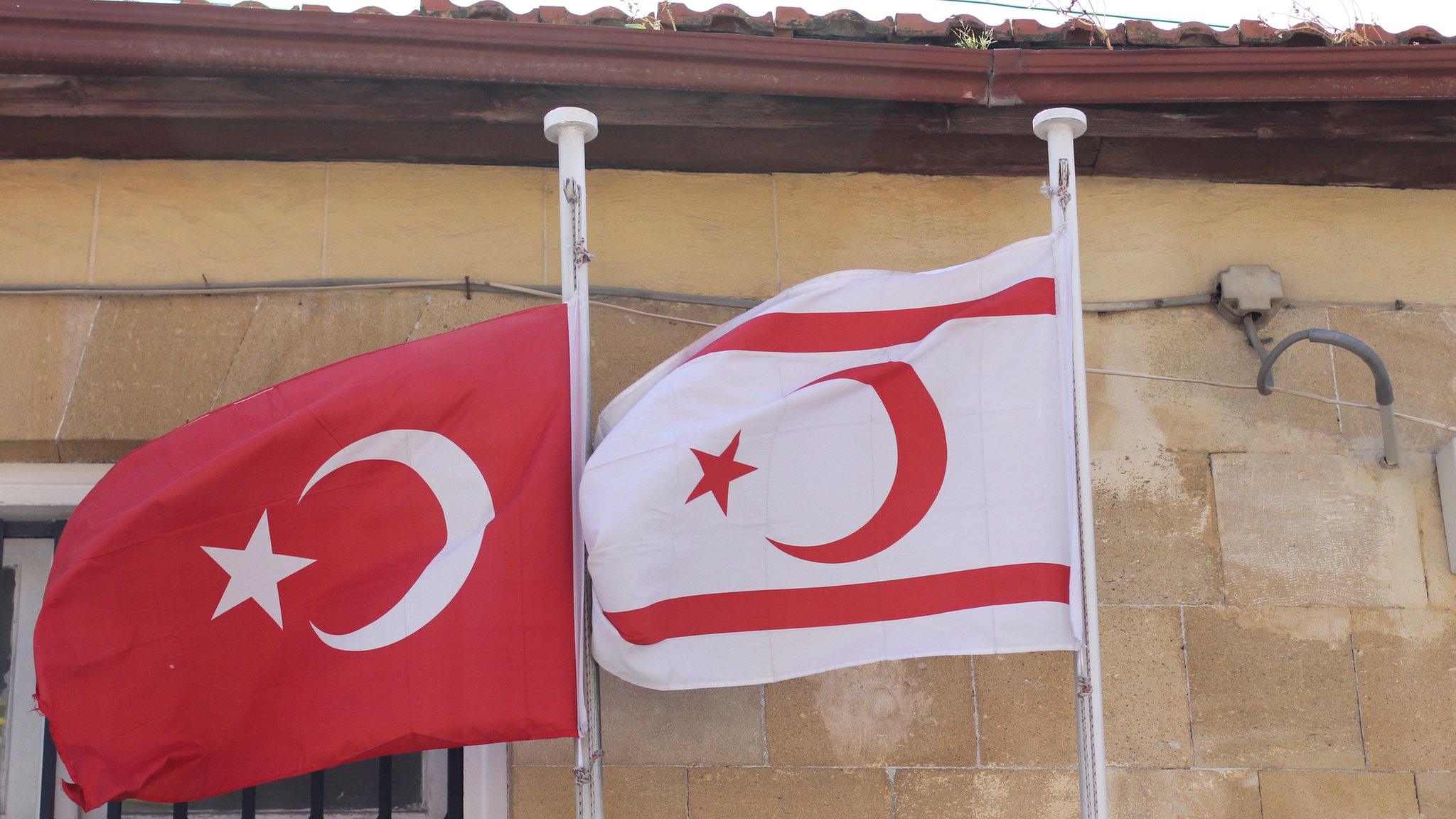Mustafa Akinci wins northern Cyprus presidential election
- Published
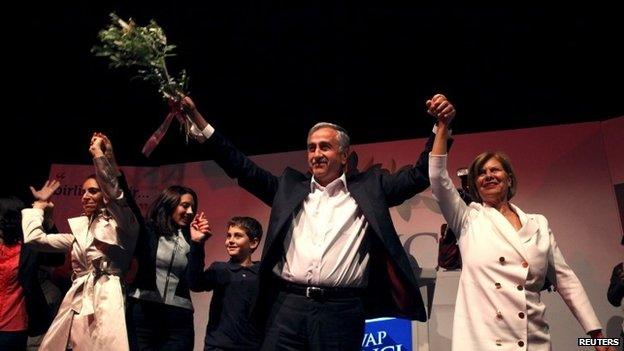
The new president capitalised on a wave of discontent against defeated incumbent President Dervis Eroglu
Voters in Turkish-controlled northern Cyprus have elected Mustafa Akinci as their new president.
Mr Akinci, standing as an independent, won 60.3% of the votes in Sunday's runoff, according to election commission figures.
The 67-year-old defeated incumbent president Dervis Eroglu, a conservative elected five years ago.
He has said he would work with renewed urgency to find a peace deal on Cyprus after four decades of division.
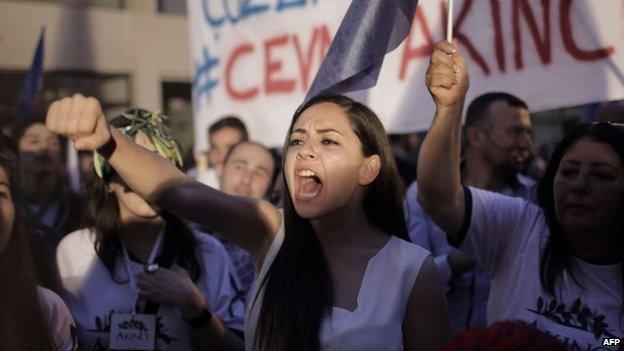
Mr Akinci's ecstatic supporters celebrated his victory in the Turkish part of Nicosia
The island was divided in 1974 by a Turkish invasion staged in response to a short-lived Greek-inspired coup staged to secure a union with Greece. In 1983 the Turkish-held area declared itself the Turkish Republic of Northern Cyprus.
Peace negotiations came to a halt last October, when Greek Cypriots walked out in protest at the presence of a Turkish ship prospecting for natural gas off the island's south coast.
Wave of discontent
Correspondents say that Mr Akinci is viewed as a moderate who can push forward the stalled reunification talks that are expected to resume next month.
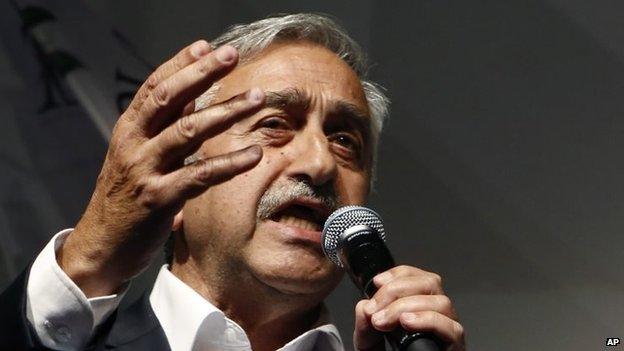
Mr Akinci earned his political colours during a 14-year term as mayor of the Turkish-Cypriot half of the capital Nicosia from the late 1970s to the early 1990s
The new leader capitalised on a wave of discontent against Mr Eroglu, who failed to unite right-wing supporters.
"We achieved change and my policy will be focused on reaching a peace settlement," Mr Akinci told thousands of joyful supporters at a victory rally.
"This country cannot tolerate any more wasted time."
Mr Akinci said that he had already spoken to Cypriot President Nicos Anastasiades and that they had agreed to meet soon.
"[Mr] Anastasiades and I are [of] the same generation... If we can't solve this now, it will be a tremendous burden on future generations,'' he said, pointing out that the strength of his victory was a riposte to those who accused him of selling out to Greek Cypriots.
The new president earned his political colours during a 14-year term as mayor of the Turkish-Cypriot half of the capital Nicosia from the late 1970s to the early 1990s.
- Published24 March 2015
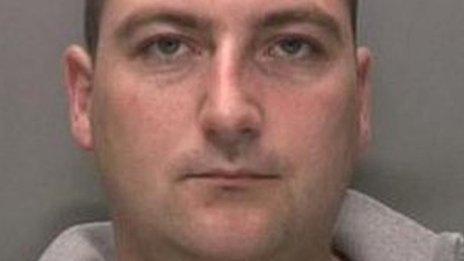
- Published26 February 2015
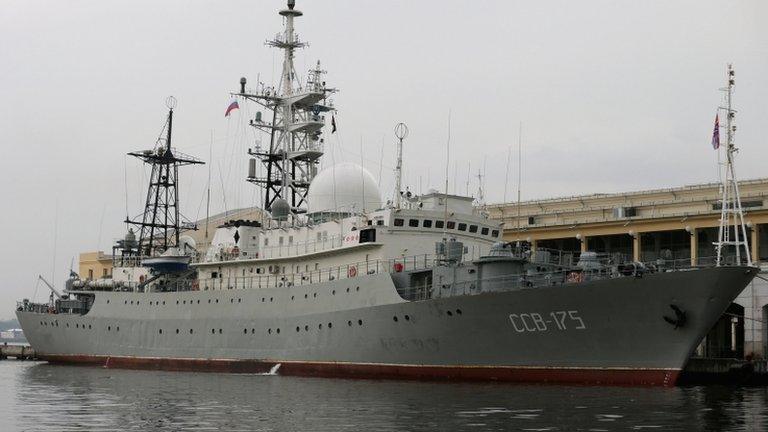
- Published27 January 2014
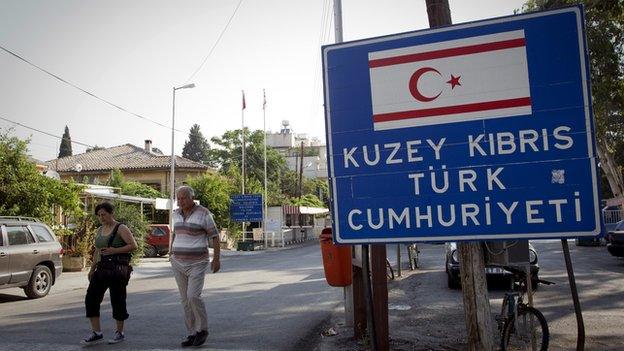
- Published29 March 2013
